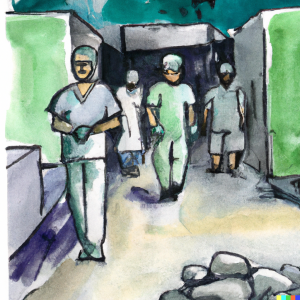
The Future of LGBTQ Rights and Public Health Under a Second Trump Administration
As the second Trump presidency looms, the LGBTQ+ community and its allies are bracing for sweeping changes to rights, protections, and access to critical health care. Donald Trump’s track record during his first term and his campaign promises for 2025 outline a troubling roadmap for rolling back LGBTQ+ advancements, particularly targeting transgender Americans.
This blog explores key areas where these policies may affect public health and civil liberties, drawing from multiple sources to provide a comprehensive overview.
A Renewed Assault on Protections and Rights
During his first term, Trump spearheaded efforts to erase federal protections for LGBTQ+ individuals, including the revocation of anti-discrimination provisions under the Affordable Care Act. His administration barred transgender people from serving in the military, weakened Title IX protections for LGBTQ+ students, and enabled health care providers to deny services based on religious beliefs. These actions laid the groundwork for what could be a more aggressive campaign during a second term.
Trump’s “Agenda 47” and the Heritage Foundation-backed “Project 2025” propose policies to federally define gender as binary and assigned at birth, effectively erasing nonbinary and transgender identities from legal recognition. This definition would impact everything from passports to health care access, stripping many transgender individuals of basic rights.
Health Care at Risk
Access to health care remains a top concern. Trump has vowed to ban gender-affirming care for minors nationwide, following the lead of states that have already enacted such bans. He also plans to revoke federal funding from hospitals and providers offering this care, jeopardizing essential services for transgender youth. Gender-affirming care, widely regarded as best practice by major medical associations, has been shown to alleviate mental health distress, including depression and suicidality. Without it, vulnerable youth could face dire consequences.
Beyond gender-affirming care, Trump’s proposed cuts to Medicare, Medicaid, and HIV-related programs such as PEPFAR further endanger the health of LGBTQ+ individuals, who are disproportionately uninsured and at higher risk for poverty and chronic conditions. The rollback of protections would also embolden discrimination in health care settings, exacerbating barriers for LGBTQ+ Americans seeking routine and lifesaving care.
Education and the Erosion of Title IX Protections
In education, Trump’s policies aim to dismantle Title IX protections for LGBTQ+ students, particularly transgender youth. His administration plans to prohibit transgender girls from participating in sports and restrict discussions of sexual orientation and gender identity in schools. Similar laws have already passed in states, isolating LGBTQ+ students and leaving them vulnerable to bullying and mental health challenges.
Efforts to remove books and curriculum discussing LGBTQ+ issues could deepen this erasure, leaving children without affirming resources or representation. These actions have broad implications, not only for students but also for educators, who may face criminal penalties under proposed federal obscenity laws for addressing LGBTQ+ topics.
Global and National Impacts
Internationally, the absence of U.S. advocacy for LGBTQ+ rights could embolden anti-LGBTQ+ regimes. Domestically, the rollback of protections would create stark divisions, with some states enacting safeguards while others adopt draconian measures. This patchwork landscape, reminiscent of post-Roe v. Wade abortion debates, underscores the critical need for state-level advocacy and resistance.
Building Resilience and Advocacy
Advocates, including organizations like the ACLU and GLAAD, are mobilizing to fight these potential rollbacks through litigation, public education, and grassroots organizing. They emphasize the importance of supporting local organizations and pushing for policies that affirm and protect LGBTQ+ rights. Allies can make a difference by donating, volunteering, and standing against discrimination.
The stakes for LGBTQ+ Americans and public health are monumental under a second Trump administration. While the road ahead is fraught with challenges, the resilience of the LGBTQ+ community and its allies offers hope. By uniting against discrimination and promoting equity, the fight for LGBTQ+ rights and health care access can continue—regardless of the political landscape.
Be Part of the Change – Get Weekly Updates!
Stay informed and connected. Subscribe for free and share this blog to make a difference in public health with others. If you liked this blog, please share it! Your referrals help This Week in Public Health reach new readers.



